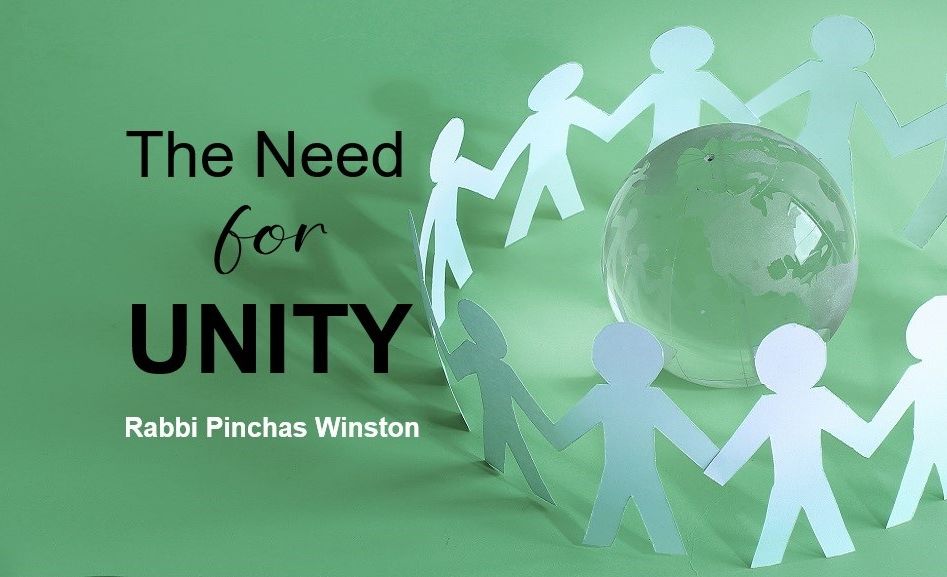
Haazinu: A Driverless Car
Some people negate the past, at least in terms of any value it may have with regard to the future; they look at history like a car without a driver…

For most of us, it is very difficult to believe that another whole year has come and gone, and that we are about to stand once again before the King of Kings on Rosh Hashanah this week, b”H (assuming that you are reading this before Rosh Hashanah). Some of us just don’t feel ready for Rosh Hashanah, the seven days of Selichot and Teshuva that follow, and then, Yom Kippur. Perhaps this is why the rabbis instituted saying Selichot at least four days in advance of Rosh Hashanah, in order to prime us for those awesome days, ready-or-not.
The truth is, this week’s parsha of Shabbat Shuva (named so because of the special Haftarah portion) is also very timely, which presents the shira (song) alluded to at the end of last week’s parsha. As we have mentioned before, shira, the Jewish form of song, is the song of the soul … what one hears when the body is silent. More precisely, shira is what one sings when even the body experiences an exceptionally open revelation of the hand of G-d, and can’t help but comment on it.
The shira of Haazinu introduces a very important concept, one that has not been outright alluded to in the past, but one which plays a very important role in understanding what goes wrong in history, and why.
There is a phenomenon (and I call it this, because really, it is not logical or natural) in life whereby people negate the past, at least in terms of any value it may have with regard to the future. When it comes to money and the business world, the opposite is the case: people constantly look at the past and try to glean wisdom from their mistakes and the mistakes of others. Everyone knows that mistakes cost money, and one has to be “on his toes” to maximize success. Yet, when it comes to the lessons of history, people tend to assume that the past was the past-water under the bridge, so-to-speak.
No wonder the Torah advocates:
ז זְכֹר֙ יְמ֣וֹת עוֹלָ֔ם בִּ֖ינוּ שְׁנ֣וֹת דֹּֽר וָדֹ֑ר שְׁאַ֤ל אָבִ֨יךָ֙ וְיַגֵּ֔דְךָ זְקֵנֶ֖יךָ וְיֹֽאמְרוּ־לָֽךְ:
Remember the days of the world, and understand the years from generation to generation. Ask your father and he will tell you, the Elders, and they will inform you. (Devarim 32:7)
It says something about a society that “commands” people to know world history. Western society makes it mandatory to learn history somewhat in the early grades, but it is certainly not a crime if you don’t. And even what they do teach does not necessarily leave a person feeling morally responsible to his or her society.
The reason is simple. History becomes meaningless if it is simply a driverless “car.” The only message it says to a person is, “Watch out! Make sure not to be in the wrong place at the wrong time, or you’ll get hit!” This was the kind of lesson one woman drew from her perspective of history’s approach to antisemitism, and the advice she had for her fellow Jews. She wrote in her college campus newspaper: “If we stop calling ourselves ‘Jews,’ ” she said, “then people will stop hating Jews.”
She was certainly not a student of history, and for sure not a student of Jewish history. Her suggestion was predicated upon one very mistaken point: she assumed that G-d had and has little to do with what happens to the Jewish people throughout history. A quick scan of Jewish history seems to indicate that G-d has had everything to do with our history. (“You can run, but you can’t hide” seems to have been written about the Jewish people, and their eternal relationship to G-d.) From the Torah’s perspective, the notion of a driverless car when it comes to history is nonsense, and, the truth be known, downright dangerous.
Frighteningly enough, the people who had built Migdal Bavel (Tower of Bavel) had a similar approach to Divine judgment: 340 years after the Flood, they built the tower to “hold up the sky,” lest it leak and flood the world all over again! Imagine that! Noach and his family were still alive at the time the plans for the Tower had been revealed; Avraham was walking around preaching about G-d’s dominion over creation as construction of the Tower began-and these guys are building a tower to make up for nature’s shortcomings!
Why?
The answer is very basic. The Talmud tells us that “Every day the yetzer hara gets up to kill us.” (Kiddush 30b). Not a very encouraging thought, is it? As if the streets weren’t dangerous enough, the Talmud has to tell us that we go to sleep and wake up with a built-in murderer!!
What the Talmud means is, life is for making free-will moral choices. Moral choice implies that immorality must be a possibility if the choice is going to be a valid one, which means that something within us must relate, on some level, to the wrong thing. We call that “thing” the yetzer hara, and it is his job, so-to-speak, to make the wrong thing appealing enough that we have to consciously choose not to do it. This is why the same Talmud writes that G-d said, “I created the yetzer hara, and I created Torah as its spice …” (i.e., Torah channels the energy of the yetzer hara in a positive direction).
However, without Torah, the yetzer hara has free reign to call the shots, which leads to certain spiritual death. And, as the Torah warns in this week’s parsha, if you look at history carefully through G-d’s “eyes,” you can see how societies that have been built upon cornerstones set by the yetzer hara fall soon enough, and leave very little trace that they ever existed in any meaningful way.
You don’t have to be a rocket scientist to figure all this out, says Moshe Rabbeinu. You just have to be willing to take the lessons of the past to heart, to recognize them for the Divine Providence they represent, and to act accordingly. It is the only way to guarantee that you will be one of the fortunate few to bear witness to history, and not the other way around.
***
Pinchas Winston is the author of over 95 books on various topics that deal with current issues from a traditional Jewish perspective. He has also written on the weekly Torah reading since 1993, called “Perceptions”, as well as on current topics and trends affecting Jewish history, past and present. One of his missions is to make the depth and beauty of the more mystical teachings of Torah understandable and accessible to those who can really benefit from them. Visit his website at thirtysix.org.








